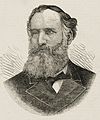1894 New South Wales colonial election
| |||||||||||||||||||||||||||||||||||||||||||||
All 125 seats in the New South Wales Legislative Assembly 63 Assembly seats were needed for a majority | |||||||||||||||||||||||||||||||||||||||||||||
|---|---|---|---|---|---|---|---|---|---|---|---|---|---|---|---|---|---|---|---|---|---|---|---|---|---|---|---|---|---|---|---|---|---|---|---|---|---|---|---|---|---|---|---|---|---|
| |||||||||||||||||||||||||||||||||||||||||||||
 Results of the election, showing the winning vote share of the elected member. | |||||||||||||||||||||||||||||||||||||||||||||
| |||||||||||||||||||||||||||||||||||||||||||||
The 1894 New South Wales colonial election was held on 17 July 1894 for all of the 125 seats in the 16th New South Wales Legislative Assembly and it was conducted in single-member constituencies with a first past the post voting system. Section 23 (1) of the Parliamentary Electorates and Elections Act of 1893 conferred a right to vote on 'every male person, being a natural born [British] subject, who shall have resided or had his principal place of abode in New South Wales for a continuous period of one year'. The 15th parliament of New South Wales was dissolved on 25 June 1894 by the Governor, Sir Robert Duff, on the advice of the Premier, George Dibbs.
This election saw the elimination of multi-member districts. At the previous election there had been 20 two-member districts, 10 three-member districts, and 9 four-member districts. Their elimination also saw the Assembly reduced in size from 141 to 125 members. Also, for the first time, the election was conducted on the one day.[1][2][3]
Although he had lost control of the Assembly, Dibbs did not resign until after parliament had reconvened, when the Governor forced his hand.[4]
Key dates
[edit]| Date | Event |
|---|---|
| 25 June 1894 | The Legislative Assembly dissolved, and writs issued by the Governor to proceed with an election |
| 9 – 14 July 1894 | Close of nominations for candidates |
| 17 July 1894 | Polling day |
| 7 August 1894 | Opening of 16th Parliament |
Results
[edit]|
New South Wales colonial election, 17 July 1894 [3] | ||||||
|---|---|---|---|---|---|---|
| Enrolled voters | 255,802 | |||||
| Votes cast | 200,956 | Turnout | 78.56 | +19.48 | ||
| Informal votes | 3,310 | Informal | 1.62 | −0.38 | ||
| Summary of votes by party | ||||||
| Party | Primary votes | % | Swing | Seats | Change | |
| Free Trade | 60,966 | 30.34 | −6.15 | 50 | +6 | |
| Protectionist | 55,652 | 27.69 | −8.81 | 37 | −15 | |
| Labor | 33,143 | 16.49 | −4.13 | 15 | −20 | |
| Ind. Free Trade | 23,324 | 11.61 | +7.91 | 11 | +7 | |
| Ind. Protectionist | 14,434 | 7.18 | +5.17 | 4 | ±0 | |
| Independent Labor | 11,504 | 5.72 | +5.30 | 8 | +7 | |
| Independent | 1,933 | 0.96 | −0.71 | 0 | −1 | |
| Total | 200,956 | 125 | ||||
Retiring members
[edit]Protectionist
[edit]- Robert Barbour MLA (Murray)
- James Torpy MLA (Orange)
Free Trade
[edit]- William A'Beckett MLA (Bogan)
- Robert Booth MLA (Bogan)
- David Dale MLA (Central Cumberland)
- James Eve MLA (Canterbury)
- William Holborow MLA (Argyle)
- James Inglis MLA (New England)
- James Marks MLA (Paddington)
- Bruce Smith MLA (Glebe)
- Robert Wilkinson MLA (Balranald)
Independent
[edit]- Jack Want MLA (Paddington) – Independent Free Trade
- Thomas Williams MLA (Upper Hunter) – Independent Labor
See also
[edit]- Candidates of the 1894 New South Wales colonial election
- Members of the New South Wales Legislative Assembly, 1894–1895
References
[edit]- ^ "Part 5B - Members returned for each electorate" (PDF). New South Wales Parliamentary Record. Parliament of New South Wales. Retrieved 14 April 2020.
- ^ "Former Members". Parliament of New South Wales. Retrieved 14 April 2020.
- ^ a b Green, Antony. "1894 election totals". New South Wales Election Results 1856-2007. Parliament of New South Wales. Retrieved 19 September 2019.
- ^ Mansfield, Bruce E. "Dibbs, Sir George Richard (1834–1904)". Australian Dictionary of Biography. Canberra: National Centre of Biography, Australian National University. ISBN 978-0-522-84459-7. ISSN 1833-7538. OCLC 70677943. Retrieved 15 April 2020.


